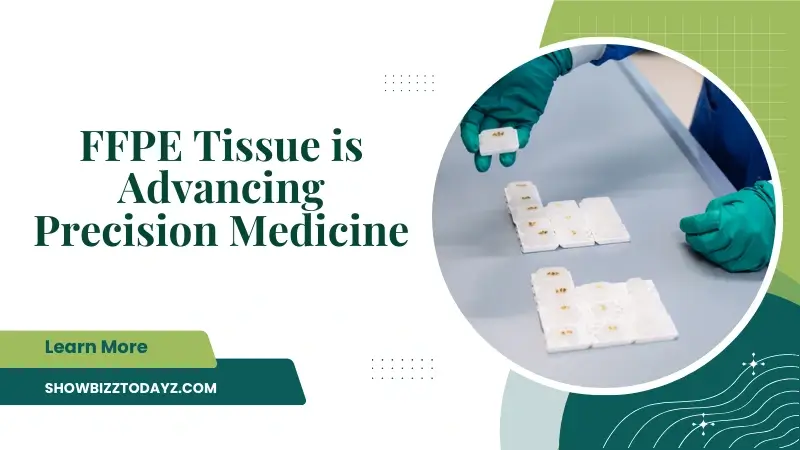How FFPE Tissue is Advancing Precision Medicine Worldwide
Precision medicine is revolutionizing healthcare by offering treatments tailored to an individual’s genetic makeup. A critical tool in this transformation is tissue preservation, which allows medical researchers and professionals to store samples over long periods without losing their integrity. This method ensures that valuable genetic and molecular data are preserved, enabling more personalized and effective treatments.

As a result, ffpe tissue is becoming essential for advancing personalized treatments that improve patient outcomes. It plays a pivotal role in precision medicine, enabling the preservation of tissues for future analysis. This long-term storage method ensures that scientists can extract valuable data from these tissues, including genetic and protein information. With this data, healthcare providers can craft treatments that are better suited to the patient’s unique genetic profile, making treatment more effective.
Advancing Cancer Research with Formalin-fixed Tissue
Cancer research has greatly benefited from these samples, which are used to preserve tumor samples for genetic analysis. Researchers analyze these preserved tissues to uncover genetic mutations that are linked to different types of cancer. This helps them develop targeted treatments designed to attack specific mutations within a patient’s cancer.
These samples are used to study cancer progression over time. Researchers can track changes in tumor cells and understand how they respond to various therapies. This is key in developing personalized cancer treatments, where the treatment plan is customized to the individual’s cancer profile, potentially improving the patient’s chances of recovery. Read another trending article, Early Symptoms of Breathing Problems in Dogs.
The Role of Formalin-fixed Tissue in Genomic Medicine
Genomic medicine is growing rapidly, and these samples are central to its progress. Scientists can extract high-quality DNA and RNA from preserved tissues, allowing them to study the genetic factors behind diseases. This is crucial for diagnosing rare genetic disorders and better understanding common conditions like cardiovascular diseases.
These tissues are compatible with advanced genomic techniques, such as next-generation sequencing. These technologies allow researchers to examine entire genomes in detail, uncovering genetic variations that may contribute to disease. This genomic analysis opens the door to developing precise therapies that target the root causes of conditions. Find valuable tips and strategies in our article about Get Rid of Mosquitoes in Orlando.
The Global Impact of Formalin-fixed Tissue on Healthcare
The formalin-fixed tissue is influencing healthcare systems globally by enabling personalized treatment strategies. The ability to analyze tissue samples from patients worldwide helps scientists understand how different populations respond to diseases. This information is key to improving treatments for diverse populations, ensuring that therapies are effective no matter where the patient is located. We have also covered Pest-Proofing Your Home on our website.
Key points about this tissue’s global impact:
- Supports international research collaboration
- Helps address health disparities in various regions
- Contributes to global standards for precision medicine
Advancing Research with Quality Tissue Samples
Access to high-quality tissue samples is essential for medical research to thrive. The ability to preserve and analyze these samples over extended periods ensures that crucial data can be studied thoroughly. Many organizations focus on providing reliable tissue storage and processing services that meet the highest standards.
Reliable tissue preservation methods play an integral role in advancing the effectiveness of precision medicine. Preserving tissue integrity allows researchers to gain fresh insights into genetic disorders and diseases. This ensures that personalized treatments continue to evolve, providing more accurate and effective healthcare solutions.
The ffpe tissue continues to advance precision medicine by enabling detailed, long-term studies on diseases. Its role in preserving tissue samples is crucial for future medical discoveries. As technology progresses, these samples will remain an essential tool in developing personalized treatments that cater to the genetic and molecular needs of individual patients. You can visit showbizztoday.com for more trending posts.
